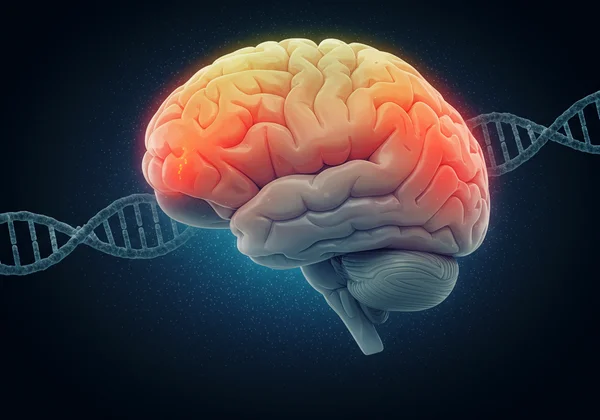नार्सिसिज्म के कारण: इसकी जड़ों को समझना और नार्सिसिस्ट टेस्ट लेना
September 15, 2025 | By Rowan Thorne
क्या आपने कभी सोचा है कि कुछ व्यक्तियों में नार्सिसिज़्म के लक्षण क्यों विकसित होते हैं? सूक्ष्म अहंकार से लेकर सहानुभूति की गहरी कमी तक, नार्सिसिज्म की उत्पत्ति को समझना स्पष्टता और अंतर्दृष्टि प्राप्त करने की दिशा में पहला कदम है। नार्सिसिज्म के कारण सरल नहीं हैं; वे प्रारंभिक जीवन के अनुभवों, आनुवंशिक प्रवृत्तियों और पर्यावरणीय प्रभावों के धागों से बुनी एक जटिल ताना-बाना हैं। मैं कैसे जानूँ कि मैं नार्सिसिस्ट हूँ या केवल ऐसे व्यवहार प्रदर्शित करने वाले किसी व्यक्ति को समझने की कोशिश कर रहा हूँ? यह प्रश्न अक्सर हमें व्यक्तित्व की मूल जड़ों को समझने की ओर ले जाता है।
यह लेख नार्सिसिस्टिक विकास की बहुआयामी उत्पत्ति की पड़ताल करेगा, जिसमें एक सहानुभूतिपूर्ण और विज्ञान-समर्थित परिप्रेक्ष्य प्रदान किया जाएगा। इन कारकों की खोज करके, आप स्वयं या दूसरों की गहरी समझ प्राप्त कर सकते हैं। यदि आप आत्म-चिंतन के लिए एक शुरुआती बिंदु की तलाश में हैं, तो कुछ प्रारंभिक अंतर्दृष्टि प्राप्त करने के लिए हमारा निःशुल्क नार्सिसिस्ट टेस्ट लें।

प्रारंभिक जड़ें: बचपन का नार्सिसिज्म और विकास
हमारे व्यक्तित्व की नींव बचपन में रखी जाती है। प्रारंभिक अनुभव, विशेष रूप से प्राथमिक देखभाल करने वालों के साथ, हमारे आत्म-बोध, हमारे मूल्य और हम दुनिया से कैसे संबंधित हैं, इसे आकार देने में महत्वपूर्ण भूमिका निभाते हैं। नार्सिसिस्टिक लक्षणों का विकास अक्सर इन प्रारंभिक वर्षों से निकटता से जुड़ा होता है, जहाँ या तो स्वस्थ आत्म-सम्मान या एक नाजुक आत्म-सम्मान के बीज बोए जाते हैं। नार्सिसिज्म के विकास की बारीकियों को समझने के लिए इस संबंध का ज्ञान आवश्यक है।
माता-पिता का प्रभाव और लगाव की शैलियाँ
प्रारंभिक विकास के मूल में लगाव की अवधारणा है - एक बच्चे और उसके देखभाल करने वाले के बीच गहरा भावनात्मक बंधन। सुरक्षित लगाव, जो लगातार प्यार, जवाबदेही और भावनात्मक उपलब्धता पर आधारित होता है, आत्म-मूल्य की एक स्थिर भावना को बढ़ावा देता है। हालांकि, असुरक्षित लगाव की शैलियाँ अक्सर नार्सिसिस्टिक लक्षणों के विकास में शामिल होती हैं।
चिंतित-उभयभावी लगाव, जो असंगत पालन-पोषण की विशेषता है, एक बच्चे को यह विश्वास दिला सकता है कि उन्हें प्यार कमाने के लिए प्रदर्शन करना होगा या "विशेष" होना होगा। इसके विपरीत, परिहार लगाव, जो उपेक्षापूर्ण या अस्वीकार करने वाले देखभाल करने वालों के कारण होता है, एक बच्चे को केवल खुद पर निर्भर रहना सिखा सकता है, जिससे एक रक्षा तंत्र के रूप में भव्य स्वतंत्रता की भावना पैदा होती है। ये प्रारंभिक संबंधपरक ब्लूप्रिंट सहानुभूति और वास्तविक संबंध के साथ बाद की कठिनाइयों के लिए मंच तैयार कर सकते हैं।
अत्यधिक प्रशंसित या उपेक्षित बच्चा: एक नाजुक आत्म-सम्मान को आकार देना
दो दिखने में विपरीत पालन-पोषण शैलियाँ विरोधाभासी रूप से नार्सिसिस्टिक विकास में योगदान कर सकती हैं। पहला अत्यधिक प्रशंसा और लाड़-प्यार है, जहाँ एक बच्चे को लगातार बताया जाता है कि वे दूसरों से बेहतर, अधिक विशेष और अधिक प्रतिभाशाली हैं, बिना इसे अर्जित किए। यह हकदारी की भावना और एक फुलाए हुए आत्म-सम्मान को विकसित कर सकता है जो वास्तविकता में आधारित नहीं है। बच्चा सीखता है कि उसका मूल्य बाहरी है और प्रशंसा पर निर्भर करता है।
स्पेक्ट्रम के दूसरे छोर पर उपेक्षित या भावनात्मक रूप से वंचित बच्चा है। जब एक बच्चे की प्यार, ध्यान और सत्यापन की बुनियादी ज़रूरतें पूरी नहीं होती हैं, तो वे एक मनोवैज्ञानिक पलायन के रूप में एक भव्य काल्पनिक दुनिया विकसित कर सकते हैं। यह निर्मित स्वयं - जो शक्तिशाली, अद्वितीय और अजेय है - व्यर्थता और परित्याग की गहरी जड़ें वाली भावनाओं के खिलाफ एक सुरक्षा कवच के रूप में कार्य करता है। दोनों ही मामलों में, एक नाजुक आत्म-सम्मान बनता है, जो स्थिर महसूस करने के लिए बाहरी सत्यापन पर अत्यधिक निर्भर करता है।

क्या नार्सिसिज्म आनुवंशिक है? प्रकृति की भूमिका की खोज
जबकि बचपन के अनुभव बहुत प्रभावशाली होते हैं, वे पूरी कहानी नहीं बताते। प्रकृति बनाम परवरिश नार्सिसिज्म का सदियों पुराना प्रश्न यहाँ अत्यधिक प्रासंगिक है। अनुसंधान तेजी से बताता है कि आनुवंशिक और जैविक कारक कुछ व्यक्तित्व लक्षणों के लिए एक प्रवृत्ति पैदा कर सकते हैं, जिसमें नार्सिसिज्म से जुड़े लक्षण भी शामिल हैं। यह याद रखना महत्वपूर्ण है कि आनुवंशिकी नियति नहीं है, लेकिन विशिष्ट पर्यावरणीय ट्रिगर्स के साथ मिलकर एक व्यक्ति को इन लक्षणों को विकसित करने के लिए अधिक संवेदनशील बना सकती है।
यदि आप उत्सुक हैं कि आप इन लक्षणों के स्पेक्ट्रम पर कहाँ आ सकते हैं, तो एक त्वरित आत्म-मूल्यांकन एक ज्ञानवर्धक पहला कदम हो सकता है।
विरासत में मिली प्रवृत्तियाँ: मिजाज और मस्तिष्क संरचना
जन्म से ही, व्यक्ति अलग-अलग मिजाज प्रदर्शित करते हैं - कुछ भावनात्मक प्रतिक्रियाओं और व्यवहारों के प्रति सहज प्रवृत्तियाँ। कुछ लोग तनाव के प्रति अधिक प्रतिक्रियाशीलता या उत्तेजना की अधिक आवश्यकता के साथ पैदा हो सकते हैं। अध्ययनों ने नार्सिसिस्टिक लक्षणों के लिए मध्यम वंशानुक्रम दिखाया है, जो एक आनुवंशिक घटक का सुझाव देती है।
इसके अलावा, तंत्रिका विज्ञान ने मस्तिष्क संरचना में संभावित अंतरों की पहचान करना शुरू कर दिया है। अनुसंधान ने सहानुभूति, भावनात्मक विनियमन और करुणा से जुड़े मस्तिष्क के क्षेत्रों में ग्रे मैटर की मात्रा में भिन्नता की ओर इशारा किया है, जैसे कि एंटीरियर इंसुला और प्रीफ्रंटल कॉर्टेक्स। ये न्यूरोलॉजिकल अंतर नार्सिसिज्म में देखे गए कुछ मुख्य दोषों को रेखांकित कर सकते हैं, जैसे दूसरों के लिए महसूस करने की कम क्षमता।

प्रकृति परवरिश का अंतर्संबंध: जीन और पर्यावरण का मिलन
नार्सिसिज्म के कारणों को समझने के लिए सबसे सटीक मॉडल जीन-वातावरण अंतःक्रिया है। एक व्यक्ति आनुवंशिक प्रवृत्ति को ले जा सकता है, लेकिन यह केवल तभी नार्सिसिस्टिक लक्षणों के रूप में प्रकट हो सकता है जब एक विशिष्ट पर्यावरणीय संदर्भ के संपर्क में आता है, जैसे कि पहले चर्चा की गई पालन-पोषण शैलियाँ।
एक स्वाभाविक रूप से साहसी और मुखर मिजाज वाले बच्चे की कल्पना करें। एक सहायक और मार्गदर्शक वातावरण में, यह बच्चा एक आत्मविश्वासी और प्रभावी नेता बन सकता है। हालांकि, अगर उसी बच्चे की या तो अत्यधिक प्रशंसा की जाती है या उसे गंभीर रूप से उपेक्षित किया जाता है, तो उसके सहज मिजाज को भव्यता, हकदारी और सहानुभूति की कमी के लक्षणों को विकसित करने में लगाया जा सकता है। यह अंतर्संबंध बताता है कि क्यों कठिन बचपन वाले हर कोई नार्सिसिज्म विकसित नहीं करता, और न ही आनुवंशिक प्रवृत्ति वाला हर कोई ऐसा करेगा।
परिवार से परे सामाजिक और पर्यावरणीय कारक
पारिवारिक इकाई एक बच्चे के लिए प्राथमिक वातावरण है, लेकिन यह एक खालीपन में मौजूद नहीं है। व्यापक सामाजिक और सांस्कृतिक कारक भी व्यक्तित्व को आकार देने और नार्सिसिस्टिक व्यवहारों को हतोत्साहित करने या मजबूत करने में महत्वपूर्ण भूमिका निभाते हैं। आज की दुनिया में, कई बाहरी कारक उस 'नार्सिसिज्म की संस्कृति' में योगदान कर सकते हैं जिसे कुछ लोगों ने वर्णित किया है।
इन व्यापक प्रभावों को समझना आपकी आत्म-खोज में एक और परत जोड़ सकता है। एनपीआई-आधारित टेस्ट इसी तरह की व्यक्तिगत खोज के लिए डिज़ाइन किया गया एक उपकरण है।
सांस्कृतिक प्रभाव और सामाजिक सुदृढीकरण
कई आधुनिक पश्चिमी संस्कृतियाँ व्यक्तिवाद, प्रतिस्पर्धा और आत्म-प्रचार को अत्यधिक महत्व देती हैं। सोशल मीडिया के उदय ने इसे बढ़ा दिया है, जिससे एक ऐसा मंच तैयार हुआ है जहाँ ध्यान, 'लाइक' और क्यूरेटेड आत्म-छवियाँ सामाजिक मुद्रा का एक रूप हैं। यह वातावरण अनजाने में ध्यान आकर्षित करने, सतही रिश्तों और एक आदर्श स्वयं के प्रक्षेपण जैसे व्यवहारों को पुरस्कृत और सामान्य कर सकता है - ये सभी नार्सिसिज्म की पहचान हैं।
जब समाज निरर्थक प्रसिद्धि और भौतिक सफलता को हर चीज से ऊपर मनाता है, तो यह एक नार्सिसिस्टिक विश्वदृष्टि को मान्य कर सकता है। ये सांस्कृतिक प्रभाव स्वस्थ महत्वाकांक्षा और अस्वस्थ भव्यता के बीच अंतर करना कठिन बना सकते हैं, व्यक्तियों के लिए और उनके आसपास के लोगों के लिए भी।

आघात, प्रतिकूलता और अनुकूली रक्षा तंत्र
पालन-पोषण से परे, बचपन के आघात के अन्य रूप या महत्वपूर्ण प्रतिकूलता नार्सिसिस्टिक लक्षणों के विकास के लिए शक्तिशाली उत्प्रेरक हो सकते हैं। भावनात्मक, शारीरिक या यौन शोषण, गंभीर धमकाने, या अराजक वातावरण में बड़े होने जैसे अनुभव एक बच्चे की सुरक्षा और आत्म-मूल्य की भावना को तोड़ सकते हैं।
ऐसे भारी दर्द के जवाब में, एक बच्चा एक शक्तिशाली अनुकूली रक्षा तंत्र के रूप में नार्सिसिज्म विकसित कर सकता है। एक भव्य, अछूत व्यक्तित्व बनाना आघात से जुड़ी भेद्यता और शर्म से खुद को अलग करने के लिए एक अस्तित्व तंत्र बन जाता है। यह फुलाया हुआ आत्म-छवि एक गहरे घायल आंतरिक कोर की रक्षा करता है। इस संदर्भ में, नार्सिसिस्टिक व्यवहार वास्तविक श्रेष्ठता से नहीं, बल्कि गहरे, ठीक न हुए दर्द से पैदा होते हैं।
नार्सिसिज्म की उत्पत्ति के जटिल ताना-बाना को समझना
नार्सिसिज्म के कारण शायद ही कभी सीधे होते हैं। वे आनुवंशिक प्रवृत्तियों, प्रारंभिक लगाव के अनुभवों, विशिष्ट पालन-पोषण शैलियों और व्यापक सांस्कृतिक प्रभावों के एक जटिल अंतर्संबंध से उभरते हैं। कोई एक कारण नहीं है, बल्कि जोखिम कारकों का एक अभिसरण है जो एक व्यक्ति के व्यक्तित्व विकास को आकार देता है। इन कारणों को समझना दोषारोपण के बारे में नहीं है, बल्कि अंतर्दृष्टि और करुणा को बढ़ावा देने के बारे में है।
यह ज्ञान आपको सशक्त बनाता है, चाहे आप आत्म-खोज की यात्रा पर हों या अपने जीवन में किसी के व्यवहार को समझने की कोशिश कर रहे हों। यह इस बात पर प्रकाश डालता है कि एक भव्य बाहरी हिस्से के नीचे अक्सर आत्म-बोध की एक नाजुक भावना छिपी होती है, जो एक अद्वितीय और अक्सर दर्दनाक इतिहास से आकार लेती है। यदि ये अंतर्दृष्टि आपके साथ प्रतिध्वनित होती हैं, तो अपनी समझ को गहरा करें। आज ही अपना मूल्यांकन शुरू करें।
नार्सिसिज्म के विकास के बारे में सामान्य प्रश्न
मुझे कैसे पता चलेगा कि मैं नार्सिसिस्ट हूँ या केवल आत्मविश्वासी?
स्वस्थ आत्मविश्वास आत्म-मूल्य की एक स्थिर भावना और वास्तविक उपलब्धियों में निहित है। यह विनम्रता और सहानुभूति को संभव बनाता है। नार्सिसिज्म में, हालांकि, एक फुलाया हुआ और नाजुक आत्म-सम्मान शामिल होता है जिसे लगातार बाहरी सत्यापन, हकदारी की भावना और दूसरों के लिए सहानुभूति की महत्वपूर्ण कमी की आवश्यकता होती है। एक आत्मविश्वासी व्यक्ति गलतियाँ स्वीकार कर सकता है, जबकि मजबूत नार्सिसिस्टिक लक्षणों वाला व्यक्ति अक्सर ऐसा करने के लिए संघर्ष करता है।
नार्सिसिस्टिक लक्षणों और एनपीडी (NPD) में क्या अंतर है?
नार्सिसिज्म एक स्पेक्ट्रम पर मौजूद है। कई लोगों में कुछ नार्सिसिस्टिक लक्षण होते हैं (जैसे, कभी-कभी आत्म-केंद्रित होना) बिना किसी विकार के मानदंडों को पूरा किए। नार्सिसिस्टिक व्यक्तित्व विकार (एनपीडी) भव्यता, प्रशंसा की आवश्यकता और सहानुभूति की कमी के एक व्यापक और लचीले पैटर्न द्वारा परिभाषित एक नैदानिक निदान है जो कामकाज और रिश्तों को महत्वपूर्ण रूप से बाधित करता है। हमारा ऑनलाइन नार्सिसिस्टिक मूल्यांकन लक्षणों का अन्वेषण करने के लिए एक शैक्षिक उपकरण है और यह किसी पेशेवर द्वारा किए गए औपचारिक नार्सिसिस्टिक व्यक्तित्व विकार टेस्ट का विकल्प नहीं है।
क्या नार्सिसिस्टिक प्रवृत्तियों वाला व्यक्ति वास्तव में बदल सकता है?
परिवर्तन संभव है लेकिन इसके लिए महत्वपूर्ण आत्म-जागरूकता, प्रेरणा और अक्सर, पेशेवर मदद की आवश्यकता होती है। क्योंकि मुख्य नार्सिसिस्टिक लक्षण गहराई से अंतर्निहित रक्षा तंत्र हो सकते हैं, व्यक्ति को अंतर्निहित भेद्यता और दर्द का सामना करने के लिए तैयार रहना चाहिए जिससे वे लंबे समय से बचते रहे हैं। यह यात्रा चुनौतीपूर्ण है लेकिन असंभव नहीं है, खासकर उन लोगों के लिए जो स्पेक्ट्रम के निचले सिरे पर हैं और जो अपने व्यवहार के स्वयं और दूसरों पर पड़ने वाले नकारात्मक प्रभाव को पहचानते हैं।
क्या नार्सिसिज्म के विकास में पर्यावरण आनुवंशिकी से बड़ी भूमिका निभाता है?
अधिकांश विशेषज्ञ सहमत हैं कि पर्यावरण, विशेष रूप से प्रारंभिक बचपन के अनुभव, सबसे शक्तिशाली आकार देने वाली शक्ति है। जबकि आनुवंशिकी एक प्रवृत्ति या एक निश्चित मिजाज पैदा कर सकती है, यह पर्यावरण है जो इन प्रवृत्तियों को नार्सिसिस्टिक व्यवहार के विशिष्ट पैटर्न में "सक्रिय" या निर्देशित करता है। प्रकृति-परवरिश का अंतर्संबंध महत्वपूर्ण है, लेकिन पोषण संबंधी अनुभवों को व्यापक रूप से प्रमुख प्रभाव वाला माना जाता है।